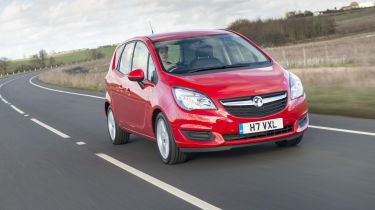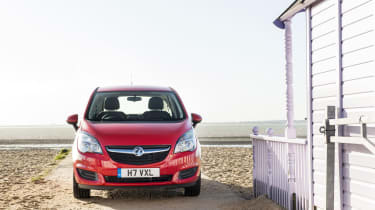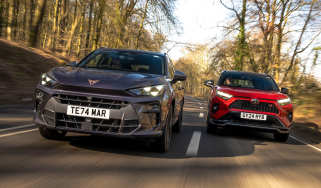Vauxhall Meriva (2014-2017) review - MPG, CO2 and Running Costs
Depreciation, depreciation, depreciation... did we mention depreciation? At least the Vauxhall Meriva diesels are economical

Given its supermini roots, you’d expect the Vauxhall Meriva to deliver penny-pinching running costs. Yet while the day-to-day running costs of the most efficient models should be impressively low, the sad fact is that the Vauxhall is hobbled by its high prices and steep depreciation.
Rivals such as the Kia Venga and Hyundai ix20 make the Meriva look expensive up front, and while the entry-level Meriva Life looks like good value on paper, it’s only available with the weedy 98bhp 1.4-litre petrol engine.
The Tech Line trim level also looks attractive on paper, but it’s not available with the handy Flexrail system – you can’t even add it as an option.
At least the Meriva’s engine range is – in the main – efficient, with the recently introduced 1.6-litre CDTi in particular delivering strong economy and low CO2 emissions, partly thanks to its Start/Stop technology.
Best of the bunch is the 108bhp version, which claims 74.3mpg and 99g/km of CO2, resulting in competitive company car benefit-in-kind rates.
The most expensive choice for running costs is the 118bhp 1.4-litre petrol turbo when equipped with a six-speed automatic gearbox. This suffers from official fuel consumption of 39.8mpg and CO2 emissions of 166g/km. The version with five- speed manual gears does a little better with 47.9mpg and 139g/km. With the SE trim, this is our recommended model.
Insurance groups
There's quite a range of insurance groups for the various Meriva models, with the cheapest petrol engine in group 9 and the most powerful diesel engines up in group 16 or 17. Across the board, ratings seem to be a little higher than the Ford B-Max and Hyundai ix20.
Depreciation
If you’ve just bought a Meriva, look away now…
The brutal truth is that Vauxhalls are unloved on the second hand market, which is not so much a comment on their running costs and reliability, but more a reflection of the brand’s lack of aspirational appeal.
This makes the Meriva a great second-hand buy, but the predicted 30 per cent residual value after three years and 36,000 miles is going to sting if you’re a private owner. Ford’s B-Max will keep 40 per cent of its original value over the same period.








